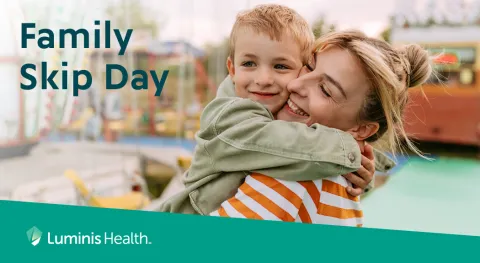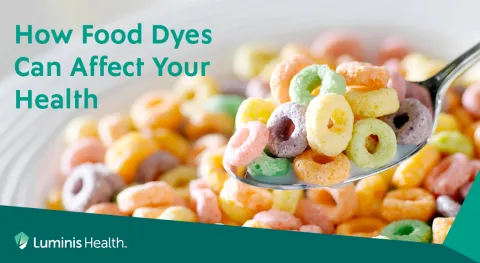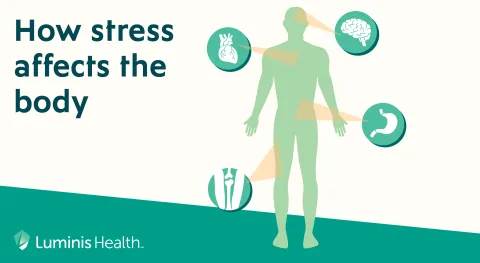by Luminis Health

It’s important to talk to your children about drugs.
A child’s brain is like a sponge. From the moment they are born to approximately age six, a child’s brain can soak up infinite amounts of information. During adolescence, the brain is still developing, making young children susceptible to the information they receive. In fact, the teenage years are a critical time of vulnerability to substance use disorders due to the brain’s malleability, according to research by the National Institute on Drug Abuse.
Adolescents have creative and innovative minds, but unless you teach them about things they need to protect their mind, it is easy for them to fall into a trap of destructive decision-making behavior. The young people I know are curious, eager and ambitious. They are drawn by things that can give them instant gratification and are eager to invent new things. This is not a negative, and as parents, we can use this energy to help our children grow and make better choices.
Communication and education are two of the most important keys in the fight against adolescent drug misuse and abuse. Parents are going to have to boost their efforts and get more comfortable with talking to their children about drugs. Here are some steps you can start with:
- Be in the know. Take time to educate yourself on the drug trends in the community and on the internet. Learn about drugs on the market and where they are sold. If you understand the effects of drug use and know the facts, you can give your child helpful information and clarify any doubts or questions.
- Know their social circles. Know the people your child is hanging out with and where they live. Kids who hang out with friends who use drugs are likely to want to try it out themselves, especially those who feel socially isolated and are trying to fit in. Show interest in knowing your child’s friends and their parents.
- Talk to your kids daily. Engage in conversations and pay attention to how your child is feeling. Create an environment of trust where your child does not feel judged. Make it clear that you’re available and willing to sit down to have an open conversation and listen.
- Encourage good decision-making skills. Let your child know his or her opinions are important and interesting. Praise all efforts and guide your child through things that he or she doesn’t know about but believe to fully understand.
- Be supportive. Recognize when your child is going through a hard time and show him or her that you have their back. An accepting environment, where your child feels like he or she can talk without fear of punishment or reprisal, increases the chances of your child turning to you for help and advice.
Knowing this information will prepare you to start a conversation with your child. Parents are often surprised how comfortable a child is talking about drugs. Many kids are actually bothered by friends using drugs and have questions for their parents but they just don’t know how to approach parents or are too scared to do so.
READ MORE: The power of parents in preventing substance abuse
Make talking and communicating with your child a regular part of your day. The earlier we can teach our children about the dangers of drugs, the better the chances we have of them not wanting to try them. At least by the time they can choose for themselves, they will be able to make an informed decision.
Ask questions, find resources and learn more at askAAMC.org/HealthyMinds.
Originally published May 8, 2018. Last updated Jan. 21, 2020.



